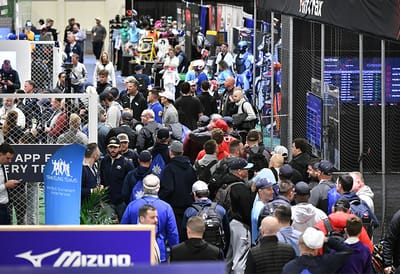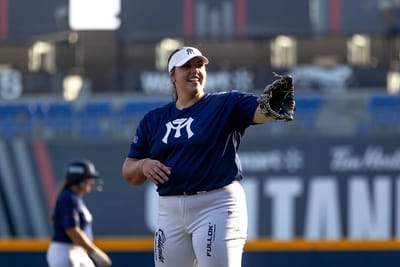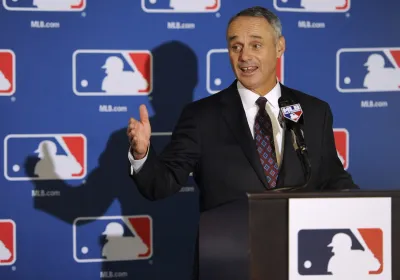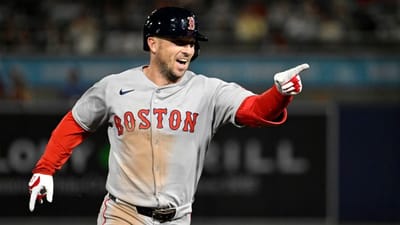
Did Samuel Basallo Just F— the Catcher Free-Agent Market?
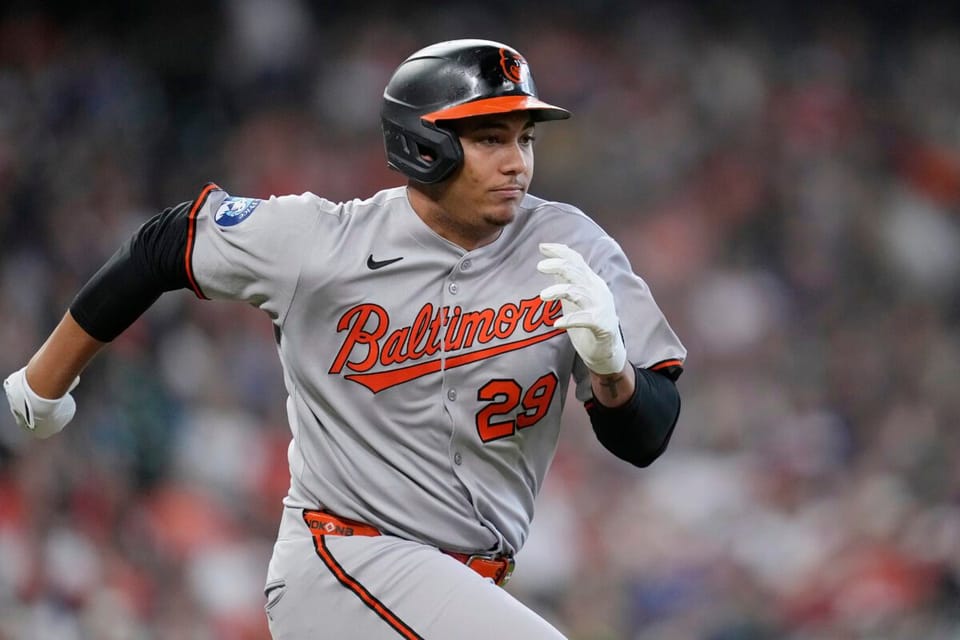
Clickbait? Absolutely.
But stick with me—you’re about to get educated while we have a laugh.
Alright, one good thing to clarify right off the bat: I’m genuinely thrilled for Samuel Basallo and his family. At 21 years old, he just inked an 8-year, $67 million extension with Baltimore less than a week after his MLB debut—wild, right?
As a former first-rounder, bonus baby, and so-called “top prospect,” I can’t help but think—man, I would’ve loved to land a deal like that. But let’s be real: this is a home-run for Basallo and also a huge move for the Orioles.
What Exactly Did the O’s Do?
• Guaranteed Basallo $67M across 8 seasons, maxing out at $88.5M with performance escalators and a club option for a ninth year .
• Two years of free agency bought out, six years covered under team control—potentially tying him to Baltimore through 2033 or even into 2034 (via option) .
• It’s the richest pre-arbitration extension ever for a catcher .
BREAKING: Catcher Samuel Basallo and the Baltimore Orioles are finalizing an eight-year, $67 million contract extension, sources tell ESPN. Basallo, who just turned 21, is one of the best prospects in baseball, and less than a week after being called up, he has a long-term deal.
— Jeff Passan (@JeffPassan) August 22, 2025
Jeff Passan breaks news about Samuel Basallo extension with the Baltimore Orioles
How Does This Impact the Catcher Market?
Broadly speaking, this is going to reverberate across free agency and arbitration for catchers:
• Historically, catchers with minimal MLB service rarely land multi-year extensions. Others, like Salvador Perez, Keibert Ruiz, Yan Gomes, Brian McCann, and Jonathan Lucroy, signed far smaller deals despite more experience.
• MLBTR ranks Basallo’s deal among the top-10 largest guarantees for players who signed extensions prior to one year of MLB service time—notably less than Roman Anthony’s $130M extension—but still a huge splash .
• Essentially, this sets a new benchmark: a too-hot-to-handle precedent, especially for an unproven catcher in the big leagues. It’ll be a major comparison point for upcoming arbitration cases and pre-debut extensions.
The Orioles’ Message to Their Fans
Let’s talk strategy. Baltimore hasn’t extended a homegrown star since Adam Jones under Mike Elias’s GM watch—until now .
What does this tell O’s fans?
“We’re finally willing to invest early.”
Despite Gunnar Henderson, Adley Rutschman, Jackson Holliday—all managed by powerful agents like Boras—this contract breaks the trend. Those guys likely won’t sign extensions because the strategy doesn’t align with their reps’ philosophy .
For fans, Basallo becomes a tangible building block for the foreseeable future. It’s a statement that the Orioles are ready to blend youth control with contract security—an appreciated shift in tone.
Rutschman and Positional Logistics
With Adley Rutschman currently out (again, oblique strain)—and posting a down season—the timing couldn’t be better for Basallo’s ascension.
Rutschman’s future? Rumors swirl about a potential offseason trade. This move brings intrigue and flexibility . Given their overlapping positions, the Orioles could rotate Rutschman to DH or 1B, or lean into Basallo long-term behind the plate.
Adley really is the face of the franchise, but this deal shifts the calculus—flexibility now, continuity later.

Historical Comparison: What Does Basallo Potentially Give Up?
Catchers rarely sign before arbitration, let alone pre-debut. A few historical points:
• If Basallo goes full-term and hits his max incentives, he’s still banking less than long-term FA catches like Buster Posey or Yadier Molina would demand in free agency.
• Upside vs. guarantee: He traded potential for security. If he’s a 30-HR guy, he may have left tens of millions on the table. But that’s the premium on peace of mind.
• Bonus baby for life—Basallo gets generational financial security. Framed that way, it’s a huge win.
Pre-Debut and Early-Service Extensions: Is This a Full-Blown Trend?
Baseball’s seeing a tidal wave of teams locking up elite prospects early, and here’s how Samuel Basallo’s deal stacks up against the others:
Roman Anthony (Boston Red Sox)
- Signed an 8-year, $130 million extension starting in 2026, plus performance escalators that could push it to $230 million, and a 2034 club option.
- Essentially a mid-debut deal: reached MLB in June 2025 and signed the extension almost immediately.
- It’s a clearly team-friendly structure: guarantees Anthony nine figures early, but could leave $100M+ in upside on the table if he becomes a superstar.
Kristian Campbell (Boston Red Sox)
- Agreed to an 8-year, $60 million extension within days of his MLB debut in early 2025. Includes club options for 2033 and 2034.
- Earned a $2M signing bonus, and his salary ramps from around $1M in Year 1 to $16M by 2032.
- Not without hiccups: after a hot start, he slumped and was optioned to Triple‑A.
Jackson Chourio (Milwaukee Brewers)
- Signed pre-debut to an 8-year, $82 million deal, with club options and escalators potentially escalating it to $142.5 million.
- Ever the generational talent coming through the minors—Brewers took the leap before he even cracked the big leagues.
How Basallo’s Deal Compares: Are We Seeing a Strategy?
|
Player |
Timing |
Guaranteed Value |
Upside Potential |
Team Control |
|
Samuel Basallo |
Days after MLB debut |
$67M over 8 yrs |
~$88M with escalators |
Covers early arb years |
|
Roman Anthony |
Mid-rookie debut |
$130M (could reach $230M) |
Yes — via escalators |
Through 2034 |
|
Kristian Campbell |
Days after MLB debut |
$60M over 8 yrs |
Club options only |
Through 2034 |
|
Jackson Chourio |
Pre-debut |
$82M over 8 yrs |
Up to $142.5M with options |
Extended early |
Trend analysis: Teams are increasingly hedging their bets on high-upside, high-ceiling prospects by extending them before arbitration kicks in. These deals deliver:
- Financial security for the player—generational money guaranteed, even if the ceiling is lower.
- Cost certainty and value for teams—long-term control at predictable rates, with upside controlled via escalators and options.
Basallo’s deal fits snugly in this mold. He may lack the mega upside value of Anthony’s escalators or Chourio’s rookie hype, but he commands a very favorable guarantee for Baltimore.
So— Did Samuel Basallo just f— the catcher free agent market? Maybe not—catchers haven’t typically been frontloaded like this—but he sure added a whole new set of scissors to the cost curve.
Basallo gets generational security—with less upside forgone than Anthony or Chourio might have sacrificed. And the O’s get a dynamic, foundational piece behind the plate for a team-friendly price.
This is a trend, not an anomaly—teams are betting early, locking up elite talent before service time inflation.
Personal note
Hindsight’s 20/20, right?
I look at this deal and think: “I wonder what that would have been like?!” As someone who knows what it means to be a former top pick and bonus baby, I feel that blend of admiration, envy, and genuine respect.
This is team-friendly—but Basallo still wins.
The Orioles get elite value with a savvy financial structure with upside and control. And Basallo gets the kind of lifetime security that few of us ever do.
The gap value lands squarely in Baltimore’s lap—if he hits, it’ll be seen as a franchise steal.
Final Thoughts
This isn’t just an extension—it’s a paradigm. A new measurement stick for catchers, pre-arbitration deals, and how small-market teams can lock up international talent early without overspending.
Basallo may not be free-agency-rich yet—but he’s legacy-rich. And from a Business of Ball perspective, this is pure gold: human emotion, market impact, strategy, historical context, and the ever-fascinating dynamic of control vs. upside.
